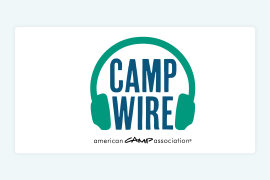Without a doubt, the most popular comment I get from clients in my public speaking work is (some variation of) “’Kids today have absolutely no initiative or basic work ethic! I ask them, ‘Well, how would you accomplish this task if it was all up to you?’ . . . and they just stare at me.” And eight times out of 10, that comment is followed with a grumbled “Millennials …”
There is certainly truth to the observation that young workers are not the self-starters or the orators that young workers were as recent as three to five years ago. They are challenging to understand. They can organize a global day of demonstration against climate change from their smart phones, but they can’t clean up the dishes from the staff house sink without an instructional chart and being told exactly how often it needs to be done.
There are some very key reasons for this. First . . . they are not Millennials. The oldest members of the Millennial Generation are about to turn 40, and the youngest of them are around 25. This means that most of today’s mainline camp staff (and most of our current campers, for that matter) are a new generation . . . Generation Z or Plurals.
By now, most people have heard of Gen Z and maybe even know some basic facts about them. But most people I have come across in my work haven’t really put together that they’re as old as they are. The oldest of them have already graduated college (or trade school) and entered the professional workforce. They are markedly different from their Millennial predecessors. Yes, they grew up with screen time, social media, and cell phones in elementary school. They also grew up in the shadow of the September 11 attacks, with the worst economy since the Great Depression . . . and until recently, they never knew a time when we weren’t at war.
Simply put, the events happening in the news during their formative years bear striking resemblance to the events that happened to the pre-Boomer generation known as the World War II Generation. Gen Z shares many traits of this generation (in the workplace, at least). They are glad to be employed, they want to be good workers, and they look to a strong leader for guidance. They also tend to keep to themselves, aren’t boat rockers (at work), and have trouble putting their feelings into diplomatic, more polished thoughts. They’re not workaholics like Boomers or Millennials, valuing instead their personal lives like their Gen X role models.
And probably the most notable event: they grew up under the educational model of the No Child Left Behind Act. Without trying to kick up a political dust bunny, I’m hoping we all can at least acknowledge that this act set a chain of events in motion that included teachers having to teach for tests, rather than through more creative engagement in the classroom. Social discourse and critical thinking took way more of a backseat in the classroom for Gen Z than any generation before it. Art, music, and many other extra-curriculars were also defunded and removed from many schools either due to the budget constraints of the economy or to allow for more in-class instruction. This had a profound impact on Gen Z. Knowing this, it becomes easier to understand why they appear to have little initiative or creativity. They really didn’t have the opportunities all of us did to exercise and develop those skills in school.
They also had a different relationship with parents and caregivers than Millennials. Millennials negotiated with their parents about things as simple as putting their shoes on. They experienced a parenting model that said, in short, “I will prepare the path for my child” and “I am doing my job when I protect my child from life’s hurts.” As a result, Millennials felt very secure in being able to negotiate with professors and professional supervisors . . . and also took negative feedback to heart, sometimes paralyzingly so.
Gen Z is growing up with different parenting messages. They hear “I will prepare my child for the path” and “I will have done my job when my child doesn’t need me anymore.” They didn’t always get a part in the play or always make the team . . . because their parents and caregivers didn’t insist on it in the same kinds of ways. And because, sadly, their schools didn’t always have a team to make or a play to audition for.
Because of this, they do have good work ethics and can roll with some adverse punches. They can hear negative feedback and not take it personally. They also have a healthy respect for authority . . . for them, you having the title of “boss” is enough to garner respect from them.
“But, Donna . . . they don’t have a good work ethic . . . and they don’t take feedback well . . . and they don’t respect me because I can’t even get them to talk to me.”
That’s because you’re managing them like they’re young Millennials. They aren’t. And therefore, you are not getting the results you hoped for.
Here are a few changes I invite you to try that may bring about different results for you.
Get Them to Open Up and Speak
It may seem nuts for me to suggest that they’re intimidated by you the first time they meet you, but they are. Think about it. How many times have you opened an interview with a Gen Z saying “So, tell me a little bit about yourself,” only to be met with a blank stare and an “uhhhh…”? So, make yourself human to them. Before asking those kinds of open-ended questions, begin with some small talk — preferably small talk about pop culture or something you already know they’re interested in. “I see your Game of Thrones House Targaryen pin . . . I seriously cannot believe how the series ended. Can you?” Hopefully, after a little dialog and geeking out ensues, they see you as more of a regular person. After making a connection, then ask more formal questions.
Train Them
We have to recognize that certain “soft skills” that are almost hard-wired into Millennials are muted or absent in Gen Z. Largest amongst these are understanding child age characteristics, understanding boundaries with staff and campers, and conflict management. Make sure to spend some extra time in your orientation on these topics. And make sure you have them role play in these areas. Remember, they didn’t get as much classroom or social practice at this as in the past.
Get Them to Perform
Be more detailed and explicit in job instructions. They don’t actually “read between the lines” and are instead pretty literal. They really will do anything you tell them to, if you are not only specific, but explicit. You can also make it an explicit goal and expectation that they demonstrate improving creative problem-solving skills and show initiative through the course of the summer. You will just have to give examples of what you mean and check back in often. “This is great! I’m so pleased you’re doing the arts and crafts ordering without prompting and without assistance from me! Next week, let’s have you start doing [another task] on your own.”
Give Them Effective Feedback
Feedback should be frequent, straightforward, brief, and whenever possible . . . written. This is a group used to frequent written communication, and their minds adjust to that the best. Funny as it may sound, I always suggest Post-It notes for all feedback, from “good job” to “fix this right away.” I made this suggestion at a camp a couple of years ago during pre-camp managers training. I came back later that summer to do some in-service training, when I noticed in the counselors’ cabins these walls of Post-It notes over their beds. “The ones in the upper portion are the things I am doing well. The ones down here closer to where I sleep are the ones I am still working on. They’re down there closest to me to remind me.” The walls were in full view of their fellow counsellors . . . not unlike social media walls. This is how their minds are wired. We have to work with it!
And feedback should not be “sandwiched” — you know, positive comment + actual issue/problem + positive comment. Not only is the real message likely to get lost, but this kind of feedback feels condescending to a Gen Zer. They will appreciate your candor and brevity. Remember, not only do they have the ability to hear direct or sometimes negative feedback, they actually appreciate it so they can get better.
This is great group of young people. They need the social atmosphere that camp offers perhaps more than any generation before. We as managers just have to learn some new skills and management techniques to get their best work out of them.
In every session I do on generational workplace topics, I say “The biggest mistake you can commit as a manager is to normalize your own generation.”
Full disclosure, I am a Gen Xer: I prefer emails to meetings, concise decision-making, and I don’t think we all have to marinate in group input to move an objective forward. But, as a Gen X manager, it’s unreasonable and unrealistic to expect Boomers, Millennials, and Gen Z to adopt all of my ways.
If we want to lead and inspire them, we have to be willing to meet them where they are . . . and simply help them grow.
This blog is part of ACA Project Real Job’s monthly initiative to support camps with staff recruiting, hiring and retention efforts.
Donna Johns-Thomas is the training director for the Boys & Girls Clubs of Boston, where she is in charge of job training and professional development for all 11 clubs. Before this, she was the director of education for the American Camp Association, New England for 13 years, providing professional development for camp professionals across the six New England states. Donna owns her own business as a camp consultant, trainer, and public speaker. Her areas of expertise include group dynamics, staff training and supervision, leadership, morale, and understanding the multi-generational workplace. Residing in New Hampshire, she is also a weddings and event planner and a Justice of the Peace. Her hobbies include playing the guitar, spending time with her family, and filling her Amazon shopping cart to the brim with things she will never buy.
Photo courtesy of Camp Cherith in the Carolinas in Clemson, SC
The views and opinions expressed by contributors are their own and do not necessarily reflect the views of the American Camp Association or ACA employees.




